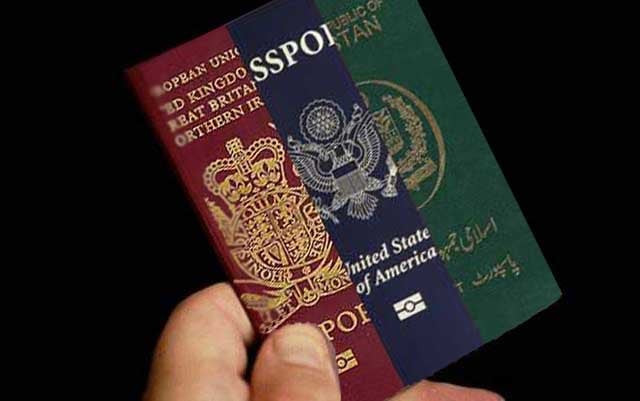
Rehman Malik: One passport and ministry short
The attempts by Rehman Malik to prove renunciation of his British citizenship took duplicity to another level.
At some point prior to the 2009 Senate elections, Rehman Malik completed and signed a nomination form which, amongst other things, invited him to declare an oath stating,
… I am not subject to any of the disqualification specified in article 63 of the Constitution…
Now, article 63 of the Constitution lists 12 grounds on which disqualification of a member from the parliament may occur; one of these is if the member ceases to be a citizen of Pakistan or acquires citizenship of a foreign state.
On May 29, 2012, the UK border agency advised Mr Malik that he was now registered as having renounced his British citizenship and furthermore provided him with a declaration of renunciation bearing the stamp of registration and confirming the date on which he had ceased to be a British citizen. This date was May 30, 2012.
In completing and signing (on oath) the nomination form in 2009, Rehman Malik knowingly declared something to be true when he knew that it was not. At that point, he was still a British citizen. By doing so he acted dishonestly.
On May 2010, the Lahore High Court (LHC) dismissed an appeal by Rehman Malik against his conviction for corruption references by the accountability court and restored a three-year imprisonment sentence - only for the sentence to be pardoned by virtue of the president exercising his authority under article 45.
Whilst the president's pardon related to the sentence passed and not the conviction, it is perhaps surprising that Rehman Malik’s Senate membership was not questioned given that he was still convicted by a court for acting in a manner prejudicial to the ideology of Pakistan - reason enough for disqualification under Article 63 (1)(g).
Notwithstanding these misdemeanours, the attempts by Rehman Malik to prove renunciation of his British citizenship took duplicity to another level. A cheque was presented as evidence of his attempt to renounce the citizenship in 2008. However, it contained an amount that would be payable for an application submitted in 2012 and not 2008 - leading to the obvious conclusion that it had been post dated.
Moreover, an affidavit - a witness statement taken on oath - purporting that the nationality had been renounced on March 25, 2008 was contradicted by the date contained on the supposed application submitted on April 25, 2008.
Despite the fact that Malik knowingly stated a falsehood in the nomination form, has been and stands convicted of an offence, and has potentially perjured himself with misleading information in the affidavit, Prime Minister Yousuf Raza Gilani has seen it fit to appoint him as his adviser on internal affairs with the status of a federal minister.
Not only does this bring into question the seriousness with which the government views the Supreme Court, it brings into question the judgement of our prime minister; Gilani is content to appoint a man who has proven his diminished credibility as his advisor.
Another, and perhaps more interesting feature of this episode is the involvement of the British government and particularly its Home Office – a department notorious for taking its time in responding to any form of communication.
In Malik's case, they seem to have acted with lightening speed. In the midst of the Supreme Court seeking evidence of renunciation, a meeting takes place between Rehman Malik and his British counterpart Theresa May on May 28, 2012. Following this, on May 29, the Home Office submits a letter to Mr Malik confirming that his British citizenship has been renounced.
The speed and expediency with which this took place raises uncomfortable questions about the extent to which outside influences play a part in the way justice is dispensed in Pakistan.
Read more by Sufiyan here.




COMMENTS (7)
Comments are moderated and generally will be posted if they are on-topic and not abusive.
For more information, please see our Comments FAQ